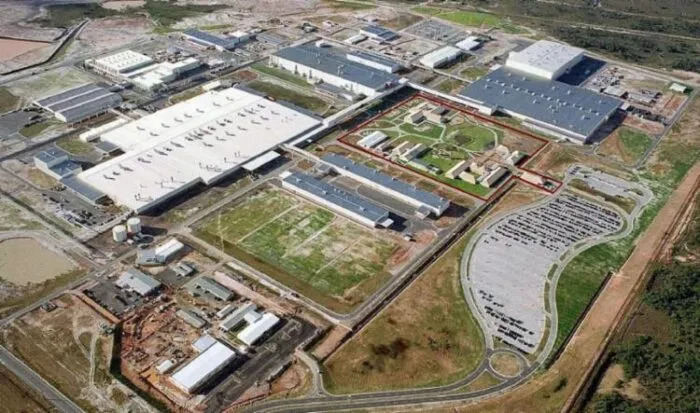On the eastern coast of Brazil, the expansive parking zone once christened Henry Ford Avenue, lies desolate.
Formerly buzzing with employees clocking in shifts, today, its vastness is punctuated by just the solitary patrol of a security car.
Remarkably, this area, now silent, spans a greater expanse than New York’s Central Park and stands as a testament to Ford Motor Co.’s past dominance.
Ex-employees vividly remember the company’s fateful decision: its plant’s closure and the cessation of all Brazilian operations two years prior.
The bitter irony wasn’t lost on them when they were tasked with dismantling the machinery they had tended to for years.
Haunted by poignant memories and milestones intertwined with their tenure at Ford, many chose to walk away, pledging never to return.
However, the winds of change carry a new scent of hope.
BYD Co., arguably the world’s foremost electric vehicle (EV) manufacturer from China, is leaving an indelible mark.
“Build Your Dreams,” the ethos behind the company’s name, strikes a chord with Glauber and countless others who faced the grim aftermath of job loss.
Whispers suggest BYD’s negotiation with Ford to claim the Camaçari plant, strategically positioned 50 kilometers north of Salvador, Bahia’s capital.
When operational, it will mark BYD’s most ambitious overseas EV venture.
This metamorphosis aligns seamlessly with the dreams of Brazil’s president, Luiz Inácio Lula da Silva, affectionately dubbed Lula.
Lula, in concert with US President Joe Biden, is driven by a shared ambition: the resurgence of their nations’ manufacturing hubs.
However, their game plans diverge. While Biden seeks technological supremacy over China, Lula embraces China as a strategic ally.
China’s foray into global investments, especially in the burgeoning EV domain, is turning heads.
Their footprint is evident from Chile to Brazil, from Indonesian foundries to lithium extraction in the African heartland.
Lula, reflecting on his roots as a leader of a metalworkers’ union in São Paulo in the 1970s, is determined to reignite Brazil’s industrial flame.
A century-old legacy binds Ford to Brazil. Pioneering the automotive industry, they paved the way for giants like General Motors Co. and Volkswagen AG.
Yet, the cultural and touristic gem of Bahia grapples with the shadows of unemployment and poverty.
Governor Jerônimo Rodrigues of Bahia is bullish about the transformative potential of Chinese investments, especially from BYD, envisioning a surge of up to 10,000 jobs.
The sprawling tapestry of Salvador’s history is now juxtaposed with modern Chinese infrastructure.
Ambitious projects, like the US$1.3 billion bridge destined to link Salvador and Itaparica Island, stand as more than mere structures—they symbolize a new era of development and promise for Bahia.
As BYD anchors itself in Salvador, palpable excitement and anticipation ripple through the city, heralding an era of economic resurgence.


